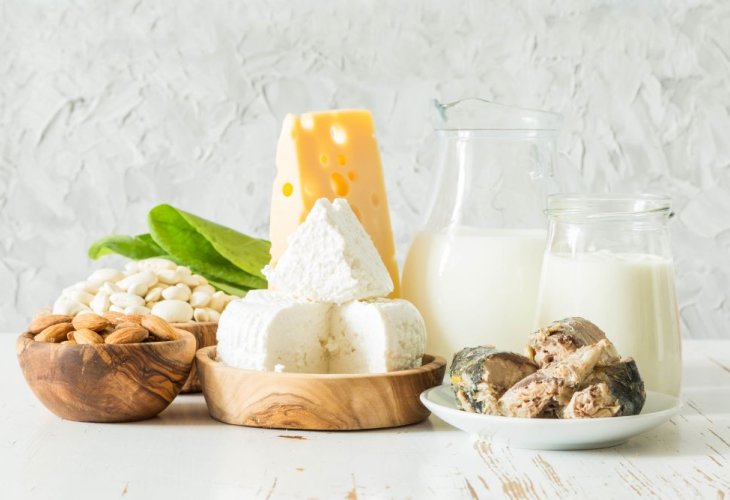Beyond Dairy: 4 Surprising Plant-Based Sources of Calcium
You don't need dairy to get your calcium fix. Dr. Maya Roseman reveals four plant-based sources for this essential mineral crucial for bone health.
 Illustration
IllustrationWhether you're lactose intolerant or just not a fan of dairy, your body still needs calcium—and there are other ways to get it.
"Calcium is crucial for the health of our bones, their strength and density (at any age), and for the ability of muscles and nerves to function." Nutritionist Dr. Maya Roseman explains that even vegans can get sufficient calcium, and it doesn't have to come from traditional sources. "We're all aware of the popular sources—like tahini and almonds—but they also pack a calorie punch, which means people usually consume them in smaller amounts. For example, a serving of 10 almonds contains just about 30 mg of calcium," Dr. Roseman points out..
So, how much calcium should you aim for each day? Dr. Roseman advises that an adult needs about 1000 mg of calcium daily on average, ideally with a low-calorie load.
Here are 4 surprising plant-based sources of calcium:
Celery
Celery is a vegetable high in dietary fiber, helping you stay full longer. In 100 grams of celery, there are only 16 calories and 40 mg of calcium. This means a salad with 250 grams of celery contains calcium equivalent to 3 tablespoons of cheese..
Broccoli
Broccoli is rich in cancer-fighting antioxidants and is one of the most nutritionally valuable vegetables. It contains 47 mg of calcium per 100 grams, so a plate with 300 grams of steamed broccoli offers almost the same amount of calcium as a slice of yellow cheese. Dr. Roseman emphasizes that if you boil broccoli in water, some of the calcium leaches into the water, and if you drain it, you lose some calcium. So, it's better to steam, stir-fry, or bake broccoli.
Green Cabbage
Green cabbage is filled with vitamin C, dietary fibers, and anti-cancer compounds. It has 40 mg of calcium per 100 grams. A cabbage salad serving contains as much calcium as yogurt. Sauerkraut also has the same calcium level.
Kale
When it comes to calcium content, kale comes out on top. It boasts 150 mg of calcium per 100 grams. It's delicious after a quick heat-up, so it's recommended to chop it into small pieces and add it to pasta or other dishes.

